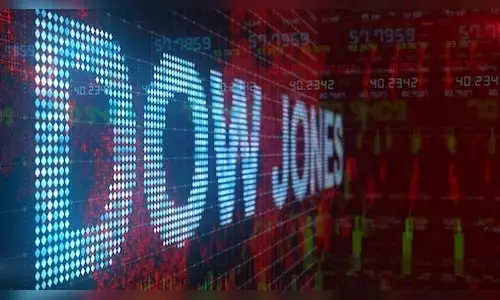The US equity markets have experienced a remarkable surge in the wake of the recent presidential election, with futures on the Dow Jones, S&P 500, and Nasdaq Composite all trading significantly higher. This unexpected turn of events has left investors and analysts alike grappling with the implications of Donald Trump's potential second term as the 47th President of the United States.
Defying Expectations, Markets Reach New Heights
The Dow Jones futures are currently trading with gains of over 1,000 points, while the S&P 500 and Nasdaq Composite futures have also seen substantial increases of more than 120 and 350 points, respectively. If these gains hold, the US markets on Wall Street are poised to open at record-high levels, with the Nasdaq Composite just 350 points away from a new all-time high and the Dow Jones approximately 1,000 points shy of the same milestone. The S&P 500 is also nearing an unprecedented peak, sitting just under 100 points away from its previous high.The "Trump Trade" Resurfaces
The resurgence of the "Trump trade" has been a significant driver of the market's upward momentum. Investors have once again embraced the policies and economic agenda associated with the former president, leading to a surge in various asset classes. The 10-year Treasury yields have climbed as high as 4.46%, reflecting the market's anticipation of a more hawkish monetary policy under a potential Trump administration.Interestingly, the cryptocurrency market has also responded to the election results, with Bitcoin reaching a new all-time high, crossing the $75,000 threshold. This development underscores the growing influence of digital assets in the broader financial landscape and the market's sensitivity to political and economic shifts.Strategists Weigh In on the Outlook
Wall Street strategists have offered their insights on the potential implications of a Trump victory. Analysts at Goldman Sachs Group Inc. have acknowledged the possibility of increased volatility in the aftermath of the election, but they have also highlighted the resilient US economic backdrop as a factor likely to support equities in the long run.According to the Goldman team, led by Andrea Ferrario, there is just an 18% chance of a bear market in the next 12 months, even when accounting for the risks posed by the election. The strategists have emphasized that "equities should be able to digest higher bond yields as long as they are driven by better growth."Meanwhile, Morgan Stanley's Mike Wilson has expressed a more optimistic view, suggesting that the S&P 500 could continue to climb into the final stretch of 2024, with a potential 5% gain from current levels not out of the question. Wilson believes that investors will exhale after the US presidential election passes and the year-end "fear of missing out" (FOMO) sentiment kicks in.Navigating the Uncertain Landscape
The market's reaction to the election results has been a stark contrast to the expectations of many analysts and pundits. The resurgence of the "Trump trade" and the potential for a second term have caught many off guard, leading to a reevaluation of investment strategies and market outlooks.As investors navigate this uncertain landscape, it will be crucial to closely monitor the policy decisions and economic initiatives of the Trump administration, should he be elected. The impact on sectors, industries, and individual companies will be closely watched, as the market seeks to price in the potential implications of a Trump presidency.Furthermore, the interplay between the political landscape, monetary policy, and the broader economic conditions will be a key focus for investors and analysts alike. The ability of the markets to "digest higher bond yields" and maintain their upward trajectory will be a critical test of the market's resilience and the underlying strength of the US economy.In the end, the aftermath of the US election has once again demonstrated the unpredictable nature of the financial markets and the importance of adaptability and vigilance in the face of shifting political and economic realities.
